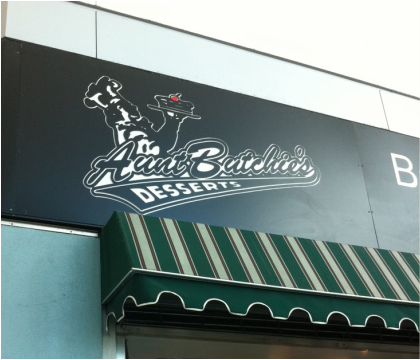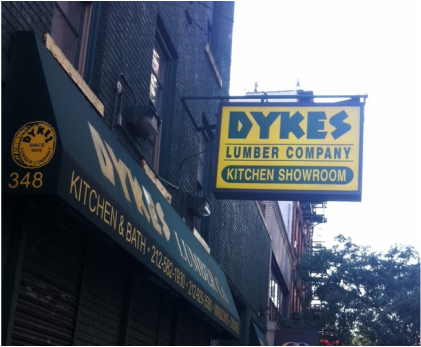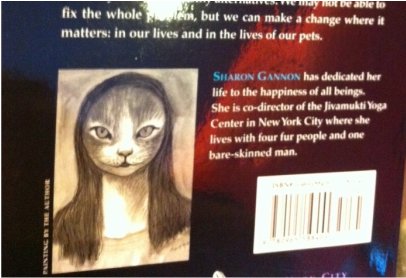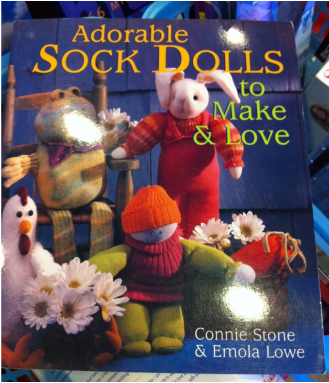|
I've been warming up to the idea of writing a post about what it was like to come out while married to a guy. While I am not quite ready for that post yet, I thought it might be fun to share some red flags (or, well, rainbow flags) I now see as clues that I was a big ol' lesbo. My DXH says that the only characteristic that gave him pause was my habit of keeping my wallet in my left rear pocket, and when I was about to pay for something, reaching back with my left hand and whipping the wallet out of my pocket, “like a guy.”
I have a friend who came out while married to a woman. Now he lives with his partner in the Bay Area, and collects little Wedgwood dish sets from the "Peter Rabbit" collection. I told him that the collection had to be his gayest characteristic. It turns out that he began building his collection while he was married. If you can believe it, she didn't suspect a thing! While my DXH and I might not have been quite that clueless, in retrospect we can both see many characteristics that were… perhaps a tad dykey.
Were there any bright rainbow "flags" in your life before you came out?
15 Comments
As you might remember, the sardonic and stylish Lady Haha herself recently agreed to an interview with yours truly. What fun! Here are the questions I asked (thanks in large part to your awesome suggestions, dear readers) and Kate's answers:
BW: You're in your 60's and still smokin' hot. What's your secret? A great workout regimen? Your 20-year relationship? A macrobiotic diet? KC: You're very kind. My secret is my father's genes. At 90 he looked like an older Paul Newman. I've been doing yoga for two years now and wish I'd started earlier. My galpal is 11 years younger than me, so she keeps me on my toes. Twelve years ago I did Weight Watchers and still am a daily point counter. BW: One of my readers points out that you always look stylish (ah, so true...). What are some common butch fashion faux pas you see? Are there any fashion trends you'd like to bring back? KC: Whatever you wear, you have to wear it confidently. I wish we had more--any?--butch tailors who speak the same language. So you could take something you found--a plaid hunting vest, gabardine trousers--and go to them and get it tailored perfectly for your body. BW: How do you think the growing number of FTMs will affect the lesbian community--and butches particularly? KC: First, I respect FTM choices. We butches--soft through hard--have a big responsibility to carry on! We're not running short on femmes, are we? BW: As a butch with crushes on women like Rachel Maddow and Julie Goldman, I'm acutely aware of the stigma against butch-butch dating. Do you see this, too? Where do you think it comes from? KC: Very strict people. You can talk stigma all you want--but when it comes to rip-roaring, throbbing attraction, stigma goes out the window. Thank goodness. Or I would never have come out years ago. Thank goodness for some of the loveliest lady ankles and what went up from there for knocking me off my stigma rocker. BW: Would you rather (1) host "Saturday Night Live;" (2) make out with Annette Bening; or (3) run for Congress? KC: I'd love to make out with Annette Bening on "Saturday Night Live" and then go work on Tammy Baldwin's Wisconsin senatorial campaign. Thanks again, Kate! Much love from Butch Wonders--we can't wait to see what you do next! I've had many conversations with friends--butches, trans men, femmes, straight people, gay men--about the tension that sometimes exists between butches and trans men (FTMs). When I attended the first Butch Voices conference in Oakland a few years ago, the discomfort was sometimes palpable. There was talk of whether a person can be trans and butch, and whether "butch" is an inherently female term. Although both FTMs and butches understood they had a great deal in common, it was tough to come to make sense of what their differences actually meant. These issues can also add to confusion for butches who are questioning whether they are trans, or vice versa.
The purpose of this post is to try to shed some light on this tension. What does it look like? Where does it come from? What can we do about it? It's a tough topic to write about, but it's an increasingly divisive issue in the queer and lesbian communities, and I think it deserves to be addressed. I hope this post will help foster more dialogue about the butch-FTM divide. (Of course, this tension doesn't always exist; I know some butches and FTMs who are good buddies and talk openly with one another.) Anyhow, here's my working list of some of the sources of tension/weirdness/friction/dialogue/disagreement I've observed between trans men and female-identified butches. 1. THE IDEA THAT FTMS ARE GAINING MALE PRIVILEGE In our world, men are privileged over women. (Please don't make me start yammering on about the gender-wage gap and hegemonic masculinity.) When a person goes from navigating the world as a woman to navigating it as a man, he is treated differently--and overall, better (as Kristen Schilt has documented)--than he was as a woman. So, yes, trans guys can often take advantage of male privilege if they want to. This doesn't mean they transition because they want this privilege, though. It seems to me an unfortunate byproduct of trans men becoming who they really feel comfortable being. 2. FTMS' TRANSITION FROM A MARGINAL IDENTITY TO A (SORT OF) MAINSTREAM IDENTITY Many--but not all--FTMs identified as butch before identifying as trans men. Before testosterone and surgery, they may have passed as men sometimes--but afterward, most FTMs are eventually able to pass as men all the time (stubble, thick arm hair, Adam's apple, the works). As butches, they were non-gender-conforming women. They were unusual, marginal, and often visible as queer. As I have talked about before, this is not always a comfortable feeling. But as FTMs, they can (usually) pass as bio men in their everyday lives. As some see it, trans men get to walk around a grocery store and feel like "normal" men in a way that many butches do not get to feel like "normal" women. 3. BUTCHES' AND FTMS' RELUCTANCE TO DATE EACH OTHER I've occasionally heard trans men complain that butches won't date them, or butches complain that trans men won't date them. But much more commonly, I've heard trans men and butches say they wouldn't want to date each other. It's always been obvious to me why (lesbian) butches wouldn't want to date trans men. Generally, trans men want to be seen as men. And generally, they (eventually) look like men. And if you're not attracted to men, this presents an obstacle. But I was flummoxed about why most of my FTM friends would ask out feminine women, or other trans men (or occasionally, gay bio men), but never butches. This confused me until an FTM friend (my roommate at the time) explained: "If I date a femme, we look like a traditional straight couple and it affirms my masculinity. If I date a fag or a trans guy, we look like two gay guys; we're both men and that affirms my masculinity, too. But if I'm with a butch, where does that leave me? It's just weird. Plus, she's a woman and I'm a guy and sometimes she's more masculine than me. It makes me question my masculinity, which as a trans guy is super important to me." 4. PERCEPTION THAT THE TERM "BUTCH" IS WEAKENED BY THE INCREASED PRESENCE OF FTMS Many of us were "bisexual" on our way to full-blown gayness, right? Well, many FTMs identify as butch on the way to trans maleness. So "butch" risks being seen as a phase or a transitional state rather than a place people stay. Butches who are permanent, dyed-in-the-wool butches may be seen as FTMs in the making. Mostly, I think: who cares? If you're a butch, be a butch. Yeah, other people might think you'll become trans. Then you won't. Then they'll understand that it's not a phase. At the same time, it's annoying not to have your identity recognized or taken seriously. It's also annoying to be called "he" when you want to be called "she" (just like the reverse). 5. CONCERN THAT BUTCHES ARE A "DYING" BREED Transitioning is usually a one-way ratchet; butches sometimes become trans guys; trans guys rarely become female-identified butches. So necessarily, butches decrease in number and trans guys increase in number. If you identify as a "type" and you feel like your "type" is diminishing, it's easy to imagine how you might feel threatened. Some lesbians lament the increased transition rates, and decry the "loss" of butches in the lesbian community. I get this sentiment--I really do. But it overlooks the important fact that transition has only recently become widely available. This means that for a very long time, there was probably a backlog of women who would have wanted to take T and have surgery, but because they couldn't, they identified as butch--the closest identity available. They may have always experienced gender dysphoria, but had no way to do anything about it. Indeed, it might not have even occurred to them, since trans visibility is a relatively new phenomenon. In my opinion it's likely that these factors artificially inflated the number of female butches. If I'm right, then we're not "losing" butches; we never "had" as many as we thought to begin with. We just got to borrow thousands of trans guys until society caught up. 6. THE NOTION THAT THERE'S TOO MUCH PRESSURE TO TRANSITION I've heard many butches and FTMs say that pressure is put on gender-nonconforming teens to identify as trans. If you're a masculine female, this story goes, your friends will tell you that you must be trans; after all, shouldn't your biology line up with your internal feelings of masculinity? I have no idea whether this "pressure" story is true. I'm not a teenager, and the very few FTM teenagers I do know are going through hell to make their parents understand that they're trans boys, not "just" lesbians. At the same time, it's true that butches are sometimes asked if they're going to become men. Still, this falls short of "pressure," doesn't it? 7. THE IDEA THAT FTMS ABANDON THE GAY COMMUNITY BECAUSE THEY WANT TO BE SEEN AS "NORMAL" True, some trans men just want to pass as het guys and completely dissociate with the queer community. Yeah, I wish these folks were more interested in spotlighting the "T" in "LGBT," but you know what? They're not obligated to. Imagine feeling like you were born in the wrong body, and that everyone had seen you inaccurately your entire life. Maybe all you'd want to do is quietly pass. Maybe you never saw yourself as part of the gay community in the first place. My grandmother used to say not to judge anyone until you've walked a mile in their moccasins, and that applies here. Not to mention--there are plenty of gay men and lesbians who've never lifted one homosexual finger for gay rights. I have an uncle who's been in the closet (with his "roommate" of 15 years--I kid you not) so long that he reeks of mothballs. And there are plenty of out-and-proud trans folks who fight for equality and take great pains to come out to whomever they can, whenever they can. It doesn't seem possible to generalize with any degree of fairness about people's personal or political commitments. 8. BELIEF THAT TRANS MEN ARE TAKING THE EASY WAY OUT This relates closely to #1 and #2. And sure, trans guys are often eventually free to be the beneficiaries of male and heterosexual privilege. But... the "easy" way out? Really? Giving yourself testosterone shots? Convincing your family and friends to call you by a different name? Getting expensive breast removal surgery that can take several weeks to recover from? Risking being shunned by your lesbian friends? To me, that sounds like the world's biggest hassle, not the easy way out. I can't fathom that anyone transitions simply for the convenience. 9. THE DESIRE TO MAINTAIN WOMEN'S-ONLY SPACES Historically, women-only spaces have been important to the lesbian community (and to the women's movement generally). If people who used to be female but now identify as trans men--that is, as men--want to become or remain a part of those spaces, it changes the spaces for the female-identified women there. A lesbian bar or a women's AA group may not feel like a women's group if people who present as men, look like men, and identify as men are present there. I sympathize with this view. Just as I see the value of all-trans spaces or all-gay-male spaces, I see the value of all-women's spaces. And I'm not sure that all-women's spaces should be forced to include trans men if they don't want to. At the same time, I bet it would feel crummy to be excluded from a space where you previously found community simply because you started identifying as trans. 10. STEREOTYPE OF BUTCHES AS "OLD-SCHOOL" AND OF TRANS GUYS AS THE NEW, YOUNGER "VERSION" OF BUTCH I've heard this one mostly from FTMs. It's sort of the reverse of #5, which I've heard mostly from butches. The idea that "trans is the new butch" strikes me as silly, and conflates causation and correlation (tsk, tsk). Yes, trans men are on average younger than butches. I'm guessing this isn't because butches are somehow "evolving" into trans men, but because transitioning is increasingly seen as a viable option. To me, any view that sees trans men and butches as inversely correlated (if one goes up, the other goes down), misunderstands both identities. 11. PERCEPTION THAT TRANS MEN REINFORCE THE GENDER DICHOTOMY The argument goes something like this: Butches are non-gender-conforming women. But trans men are often (sort of) gender-conforming men. By transitioning, FTMs are refusing to acknowledge the diversity of female-ness. They're saying, "I can't be a woman and be masculine, so I must be a man," which embraces and reinforces gender norms. I might be totally wrong, but I think the problem with this line of thinking is that is misunderstands trans guys' experience. Without exception, the trans guys I know don't say, "I used to be a woman, but I decided I would rather be a man." It's more like, "I was born with a woman's body and I always hated it because I always knew I was really a man." It's not simply, "I don't always like my breasts," but more like, "These things aren't really part of me at all." What do you think, BW readers? Have you thought much about these issues? Have you felt the kinds of tension I'm describing? Do you have anything to add to the list, or can you contribute some insight to the ideas I've talked about in this post? While no label can encapsulate you, labels can be useful descriptors of some of your traits and identities. Letters from a couple of straight cis male fans (keep reading, guys--we love to have you here!) made me wonder about how you, dear readers, think about your identities. Check all the terms below that you feel apply to you. (And feel free to leave comments, too!)  I spent the past week in New York. The trip had several high points, including the best chocolate chip cookie I have ever eaten (at Levain Bakery--thanks for the rec, DXH!), a brief visit to the Stonewall Inn, and a thorough inspection of Chicago's O'Hare Airport during an eight-hour (surprise!) layover. You might not know that some of the most advanced airports in the U.S. are making the switch from traditional monitor displays to crudely penned cardboard signs in order to conserve electrodes. Thanks, O'Hare, for doing your part! I also got a chance to explore several different parts of New York City, and have a few observations, some gay-relevant and others not:
 9. As does this:  10. Despite the plethora of entertainment options available in their bustling metropolis, New Yorkers are particularly fond of shapeshifting and crafts (as the selection of used books for sale at Symphony Space revealed): And lastly, my two brushes with fame: I am 99% sure we encountered John Bartlett while he was out walking one of his dogs in the West Village. I didn't know anything about him, but after we talked to him for a while about dogs and walked away, the fashion designer friend we were with told us, "Oh wow--that was John Bartlett." So I googled him, and not only is he a famous (gay) fashion designer, but is very committed to animals, particularly dogs. (And he's even cuter in person.) In the taxi line at LaGuardia right after we arrived, my DGF noticed that the address on the luggage tag of the (het) couple in front of us was a few blocks from where we were staying. Resourcefully, my DGF asked if they wanted to split a cab. Indeed, they did. During the ride, we learned that the woman was coming back from the west coast, where she had just been at the Frameline Film Festival promoting a film in which she had acted. What film, you ask? "Jamie and Jessie Are Not Together." She was surprised I'd heard of it, and had no idea that it's been getting great buzz in the lesbian blogosphere. Has anyone out there seen it yet? I'd love to post a review. |
|



 RSS Feed
RSS Feed